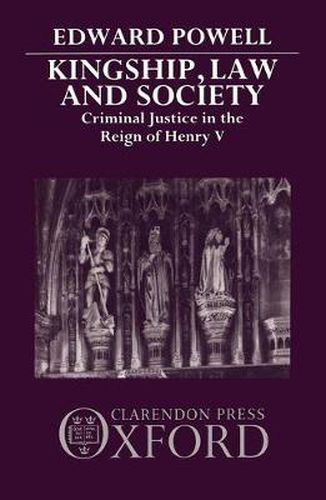Readings Newsletter
Become a Readings Member to make your shopping experience even easier.
Sign in or sign up for free!
You’re not far away from qualifying for FREE standard shipping within Australia
You’ve qualified for FREE standard shipping within Australia
The cart is loading…






This book breaks new ground in the study of crime and law enforcement in late medieval England using the reign of Henry V as a detailed case study. Dr Powell considers the subject on three levels: legal theory - academic, governmental, and popular thinking about the nature of law; legal machinery - the framework of courts and their procedures; and legal practice - the enforcement of the law in the reign of Henry V. There exists at present no other work devoted to setting the legal system of this period in its social and political context. Rejecting the traditional view of late medieval England as chronically lawless and violent, Dr Powell emphasizes instead the structural constraints on royal power to enforce the law, and the King’s dependence on the co-operation of local society for the maintenance of his peace. Public order relied less on the coercive powers of the courts than the art of political management and the use of procedures for conciliation and arbitration at local level.
$9.00 standard shipping within Australia
FREE standard shipping within Australia for orders over $100.00
Express & International shipping calculated at checkout
This book breaks new ground in the study of crime and law enforcement in late medieval England using the reign of Henry V as a detailed case study. Dr Powell considers the subject on three levels: legal theory - academic, governmental, and popular thinking about the nature of law; legal machinery - the framework of courts and their procedures; and legal practice - the enforcement of the law in the reign of Henry V. There exists at present no other work devoted to setting the legal system of this period in its social and political context. Rejecting the traditional view of late medieval England as chronically lawless and violent, Dr Powell emphasizes instead the structural constraints on royal power to enforce the law, and the King’s dependence on the co-operation of local society for the maintenance of his peace. Public order relied less on the coercive powers of the courts than the art of political management and the use of procedures for conciliation and arbitration at local level.